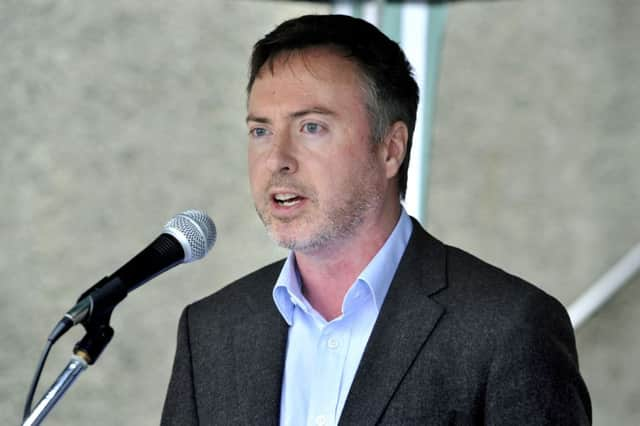MEP urges farmers to play part in food security


That was the reminder issued by Scottish MEP Alyn Smith when he spoke to some of the country’s most progressive arable farmers yesterday.
Speaking at Scottish Agronomy’s annual conference he said that with the potential for instability in the Middle East ever present, and the likelihood that this could have knock-on consequences for the price of fuels and fertilisers, making sure that a robust agriculture – supported by sensible policies – was in place was crucial.
Advertisement
Hide AdAdvertisement
Hide AdTurning to concerns perhaps more immediate in farmers’ minds, he said that to make sure that this happened it was vital that all producers responded to the current consultation on implementing the CAP measures :
“England and other European countries might be further on with the process – but the Scottish Government’s consultation is a genuine ‘tell us how to do this’ exercise which will take everyone’s views into consideration.”
Smith said that although some details still had to be ironed out, the backing gained by the Scottish Government from the European Commission in Brussels earlier this week on itsplans for both the Scottish clause and increasing coupled support had helped move the process forward.
Fellow speaker David Siddle, of farm business consultants Andersons, added that Scotland was undergoing a far more radical reform process than that which was taking place south of the Border:
“Having already moved to area payments, the English consultation is more straightforward and the Scottish consultation is far wider reaching,” he said.
While stating that the lack of clarity made it difficult for producers to plan ahead he said that, as the final plans had to be submitted to Europe by August, more clarity should exist by that time.
“But with crops being sown then for harvest in 2015, the sooner we know the details the better,” he said.
Backing Smith’s call for growers to respond to the consultation he said that the document itself gave a fair indication of what lay ahead.
Advertisement
Hide AdAdvertisement
Hide Ad“The stepped change proposed means that the historic payment element will account for 80 per cent of farm payments in the first year of the new regime, 60 per cent in the second, 40 per cent in the third and 20 per cent in the fourth year before being fully based on the area payment after that.”
He said that with arable payments currently averaging out at around £230 a hectare, growers should be aware that the talked about arable/permanent pasture area payment of around €225 a hectare equated to only £185 – constituting a substantial drop.
He also warned there was one thing farmers could be sure of: “And that is the fact that the new system will be more complex than the current one – and it will be imperative that farmers get all their annual calculations – for greening measures including the three-crop rule and the environmental focus areas spot-on to avoid penalties.”